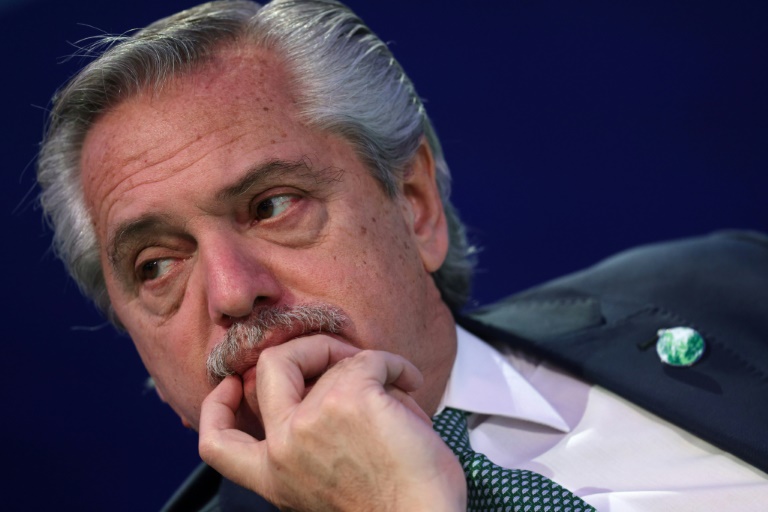Argentinians choose new lawmakers Sunday in a vote that could determine President Alberto Fernandez’s ability to govern effectively for the remaining two years of his term, marked so far by economic hardship worsened by the coronavirus pandemic.
The mandatory vote for nearly half the Chamber of Deputies and a third of the Senate follow on September primaries in which Fernandez’s center-left Frente de Todos (Front of All) ruling coalition suffered a battering.
In shock results, Frente garnered only about a third of votes cast compared to nearly 40 percent for the center-right opposition group, Juntos por el Cambio (Together for Change), led by former president Mauricio Macri.
The September vote to pick candidates for Sunday’s elections revealed deep-seated disillusionment with the government of Fernandez, who said afterwards that “we must have done something not right.”
The outcome unleashed a political crisis pitting Fernandez against his deputy president and coalition partner Cristina Kirchner, who pressured her boss into a cabinet reshuffle in the hopes it would help appease an increasingly-frustrated electorate.
Frente de Todos has 120 of 257 seats in the Chamber of Deputies, which is the lower house of Congress, with 124 up for grabs on Sunday.
It holds a majority of 41 out of 72 seats in the upper house, or Senate, which it will be eager to maintain, although analysts believe this is unlikely.
“If the results of the PASO (September’s primary) are repeated, the ruling party could lose its majority in the Senate,” said political analyst Rosendo Fraga of the New Majority think-tank.
“Not only would it not achieve a majority… but also lose seats.”
– 40% poverty –
Critically, Macri’s Juntos grouping made great strides in September in the province of Buenos Aires, the country’s largest electoral district and considered a bastion of Fernandez’s party.
Fernandez took power from Macri in 2019.
But public discontent with his government has been growing in a country in recession since 2018 and registering a GDP drop of 9.9 percent last year amid the coronavirus pandemic.
Argentina has one of the world’s highest inflation rates, at 40 percent so far this year, and a poverty rate of 42 percent for a population of 45 million.
Last month, the government announced a deal with the private sector to freeze prices on more than 1,500 basic goods, following street protests demanding greater food subsidies.
It has also increased the minimum wage and family allowances.
– No ‘unbeatable’ centers left –
The country is seeking to renegotiate a $57 billion loan from the International Monetary Fund of which it has received $44 billion that it is having a tough time repaying.
Sunday’s vote will serve as a bellwether for the next presidential elections, but also threatens to tie Fernandez’s hands for the next two years.
If the opposition makes gains and obtains legislative blocking power, “it will most probably use it,” said analyst Gabriel Puricelli of the University of Buenos Aires.
This could compel the ruling Frente de Todos to negotiate and make concessions if it wants to pass laws or make key appointments, including to the judiciary.
Mario Riorda, a political scientist with the Universidad Austral, said the Frente de Todos has lost 19 electoral points countrywide since 2019 “and no longer has unbeatable centers” of power left in the country.










